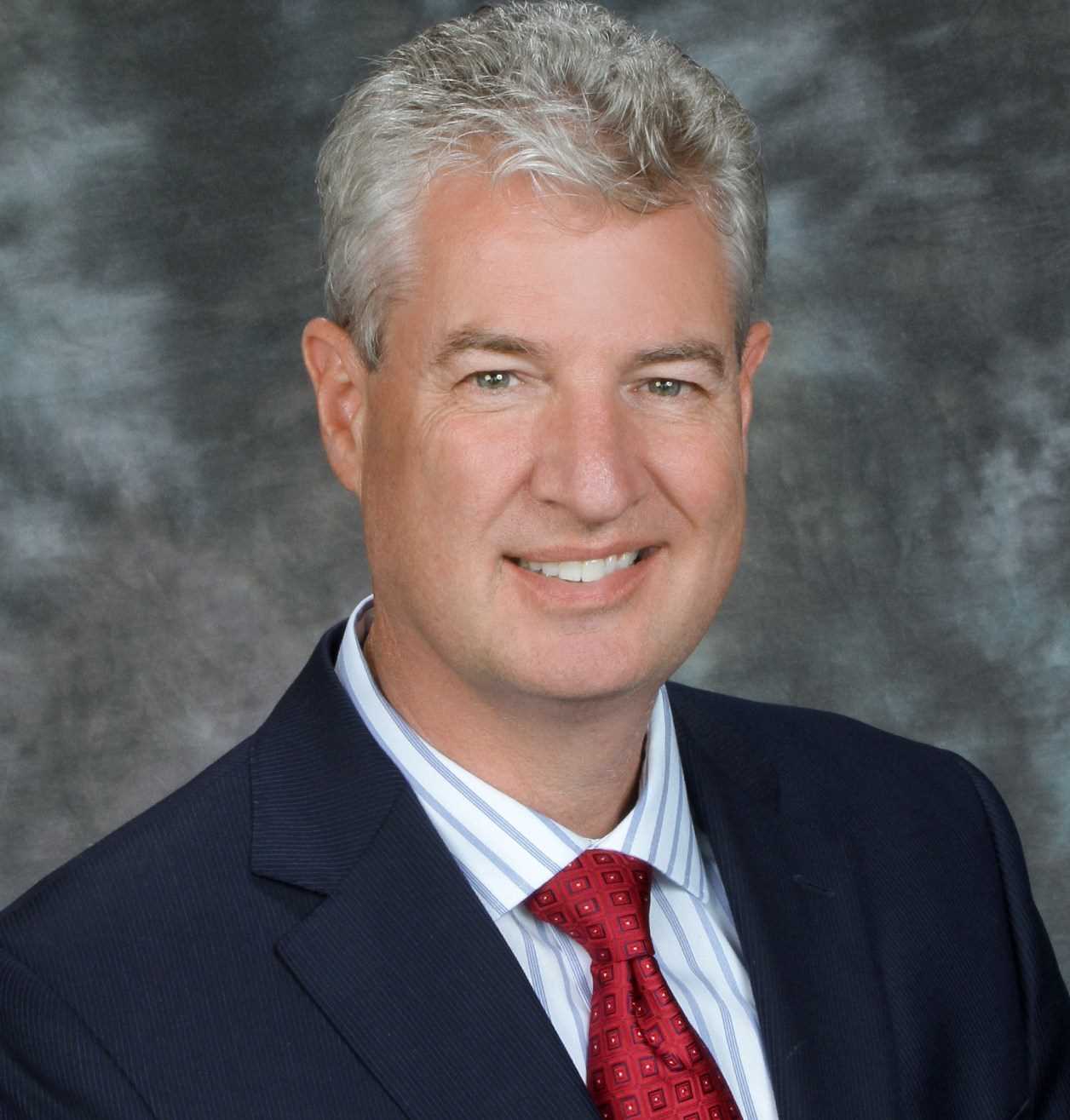
Todd Linden
- President Linden Consulting
- CEO Emeritus, Grinnell Regional Medical Center, Grinnell, Iowa
Travels From
Iowa
Todd Linden Speaker Biography
Todd Linden became president and CEO of Grinnell Regional Medical Center, Grinnell, Iowa in 1994 and retired on December 31, 2017 when he was named CEO Emeritus. He was the administrator of Greene County Medical Center, Jefferson, Iowa from 1987 to 1994 after completing his administrative fellowship at Iowa Methodist Medical Center in Des Moines, Iowa. He received both his Master’s and Bachelor’s degrees from the University of Iowa and is a fellow in the American College of Healthcare Executives.
Linden Consulting, established in 2008, is a boutique consulting firm specializing in presentations at national conferences and state hospital association meetings as well as working with healthcare organizations on strategic planning and building ingenuity, quality and safety into the culture. He is an expert in governance education and development, and facilitates board retreats, often in affiliation with governWell. Linden Consulting advises organizations that work with hospitals and health systems, focused on improving the “Quadruple Aim” by providing strategic insight and helping with relationship management. He is a member of Pivot Healthcare Advisors.
Under his leadership, Grinnell Regional became known nationally for its innovation and quality focus. GRMC was among the first hospitals in the U.S. to deploy the Xi, the newest generation da Vinci surgical robots and its Bariatric Center of Excellence was one of the largest weight reduction centers in Iowa. GRMC was cited by The Washington Post and USA Today for its optimal healing environment and by AARP Magazine as one of America’s Safest Hospitals. Collaborative research with Grinnell College at GRMC resulted in a published study showing use of copper alloy touch surfaces in patient rooms dramatically reduced bacterial load and therefore reduced the chance for the spread of infection. Cited in the New York Times and the Wall Street Journal, along with over 120 other publications, this study is changing the way hospitals are thinking about keeping their patients safe.
Linden has received numerous honors including the University of Iowa’s “Outstanding Alumni Award”, the Iowa Hospital Association’s “Excellence in Leadership Award”, “The Board of Trustees Award”, by the American Hospital Association and most recently the “The Patriotic Employer Award” by the US Department of Defense. He has had the opportunity to testify in the U.S. House, the U.S. Senate, and special conferences with both President’s Clinton and Obama on health care and economic development issues.
Linden served on the American Hospital Association’s Board from 2000-2005 and its Health Forum board from 2008-2018, the Grinnell College board from 2000-20018, and the National Rural Advisory Committee for the US Department of Health and Human Services 2007-2011. He currently serves on the advisory board for the University of Iowa College of Public Health, where he is also executive-inresidence and adjunct professor in the Department of Health Management and Policy. Linden is regular faculty for the American College of Healthcare Executives teaching the CEO Bootcamp and is on the editorial board of “Frontiers” magazine.
To book Todd Linden call Executive Speakers Bureau at 901-754-9404.
Creating a Culture of Quality and Patient Safety
Patient quality and safety are paramount. COVID 19 has shocked the system and now demands attention to reducing the spread of infection. Unfortunately, hospital acquired conditions are on the rise with over 75,000 deaths annually from hospital infections alone. Central to the mission and with reputations on the line – let alone fines and payment penalties – all hospitals need solutions to create high quality, safe care. This session maps strategies for leaders to create a culture of safety from boardroom to bedside. Utilizing generative thinking, total harm scores, effective communication techniques and bedside innovations – dramatic improvements are possible for lowering infections rates, reducing errors and improving patient satisfaction. Participants will leave energized with proven strategies and examples of how enhanced governance and clinical innovation can improve safety in their institutions.
Using the insights, experiences and passion he has applied for over thirty years as a hospital CEO, governance expert and national healthcare advocate, Todd Linden will share clear and replicable examples along with practical and proven strategies for building a culture of quality and safety.
So, Is There is a Future for Rural Healthcare in America?
The answer is of course a resounding YES, however navigating today’s rapidly changing healthcare environment while improving quality, safety, and the patient experience – and enhancing efficiency and reducing costs – requires new partnerships and new ways of doing things. With an eye to the future, this presentation will focus on strategies for rural healthcare leaders to advance the “Quadruple Aim” in their organizations. Participants will explore how to better partner with systems, other healthcare organizations, and providers, while considering ways to transition to value from volume. Now, the impact from COVID 19 must also be added to considerations about the future viability of rural hospitals. Ingenuity and innovation have to be more than buzz words, so we will learn about innovative solutions that foster a culture of safety and reducing harm and discover the payoff of creating an optimal healing environment that focuses on health improvement and integrated medicine.
Using the insights, experiences and passion he has applied for over thirty years as a hospital CEO and national advocate for rural healthcare, Todd Linden will share clear and replicable examples along with practical and proven strategies for embracing healthcare’s unprecedented challenges and the march toward value.
To Affiliate or Not to Affiliate, That is the Question
In today’s rapidly changing healthcare environment, improving quality, safety, and the patient experience – while enhancing efficiency and reducing costs – requires new partnerships and new ways of doing things. This presentation will focus on the key questions of why or why not to affiliate. The trade-off of autonomy for stability is often the most critical element boards and hospital leaders must consider. But equally important is the skill and scale necessary for competing in a risk-based reimbursement and escalating competitive markets, not to mention consideration of the impact COVID 19 is having on the industry and the pressure for consolidation.
Using the insights, experiences and passion he has applied for over thirty years as a hospital CEO, governance expert and national healthcare advocate, Todd Linden will share clear and replicable examples, along with practical and proven strategies for navigating the stormy waters of the affiliation question. He led a successful integration of a community hospital into a large health system and also participated in both an independent alliance model and non-merger affiliations.
“What’s Up Doc? – A trustee guide to understanding the medical staff”
The better the relationship between a hospital and its medical staff, the better the hospital…period. If the relationship is bad, it keeps boards frustrated and often in the dark and it keeps administrators up at night (and possibly buffing up their resumes). If the relationship is good, quality and patient experience improves, market share increases, and everyone sleeps better. The key starts with understanding the difference in perspectives among providers, boards and administrators. This roundtable will focus on exploring these differences, insights into what makes physicians and advanced practice providers tick and steps to building strong board, medical staff and administration relationships.
Using the insights, experiences and passion he has applied for over thirty years as a hospital CEO, governance expert and national healthcare advocate, Todd Linden will share clear and replicable examples, along with practical and proven strategies for building a strong board, medical staff and administrative culture of teamwork.
Optimizing the Board and CEO Relationship – It’s a Partnership
For exceptional organizational performance, the board and CEO relationship must be optimized by trust, transparency, understanding and a thoughtful game plan. Todd Linden will share strategies for building strong board-CEO relationships through effective board meetings, conducting executive sessions, and optimal role management.
Governance Best Practice – Getting to Generative Discussion
Boards come in all shapes, sizes and structures, yet they all have one thing in common – getting to “governance best practice” takes constant effort and time. This session will focus on the fundamental hallmarks strong boards constantly build upon when looking to fulfill their oversight, foresight and insight roles. From performance assessment to role clarification, committee charters to relationship management with the CEO and medical staff, education is the bedrock to creating a better board.
Using the insights, experiences and passion he has applied for over thirty years as a hospital CEO, governance expert and national healthcare advocate, Todd Linden will share clear and replicable examples, along with practical and proven strategies for building a high performing board.
The Board’s Role in Quality and Patient Safety
Patient quality and safety are paramount. Unfortunately, hospital acquired conditions are on the rise with over 75,000 deaths annually from hospital infections alone. Central to the mission and with reputations on the line – let alone fines and payment penalties – all hospitals need solutions to create high quality, safe care. The research is clear, the more engaged the board is in quality and patient safety, the better the hospital outcomes. This session maps strategies for leaders to create a culture of safety from boardroom to bedside. Utilizing generative thinking, total harm scores, effective communication techniques and bedside innovations – dramatic improvements are possible for lowering infections rates, reducing errors and improving patient satisfaction. Participants will leave energized with proven strategies and examples of how enhanced governance and clinical innovation can improve safety in their institutions.
Using the insights, experiences and passion he has applied for over thirty years as a hospital CEO, governance expert and national healthcare advocate, Todd Linden will share clear and replicable examples, along with practical and proven strategies for building a culture of quality and safety.














